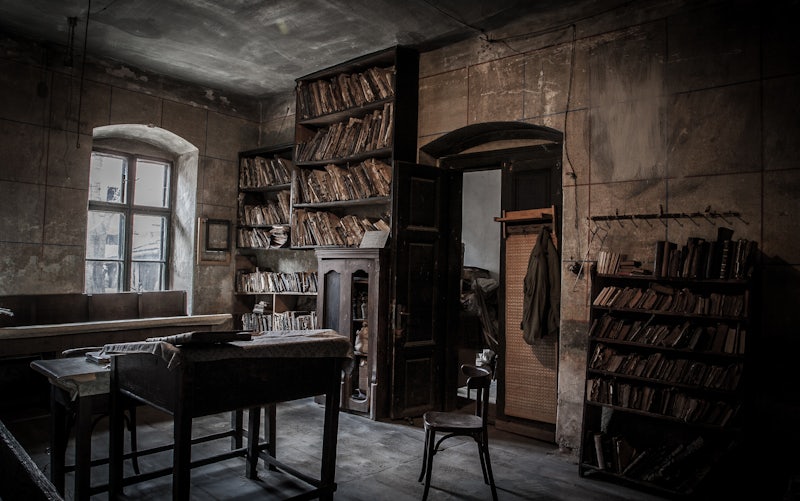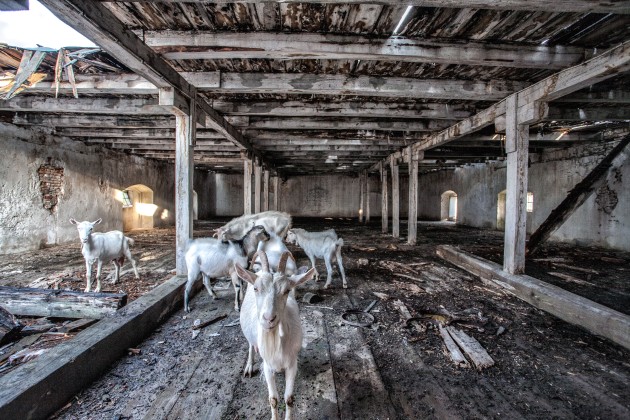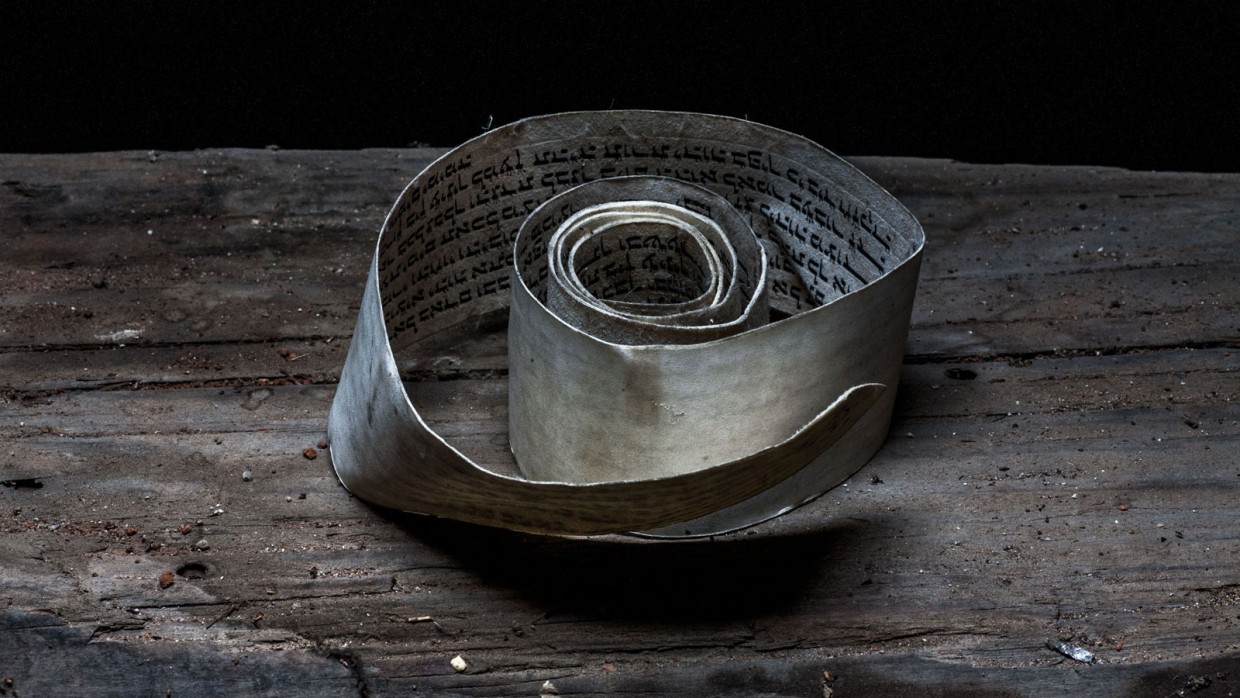 |
| Yuri Docj, Schoolroom, Bardejov, 2006 |
Disappointed by all of the recommended exhibitions in the
Marais galleries, I dropped into Karsten Greve’s storefront space on my way
home to see Yuri Dojc’s powerful selection of photographs for Last Folio. Again and again, stories of
the displaced, decimated European Jews continue to call out to us. Today, it is
not only about remembering the devastation of the Holocaust, an exhibition like
Last Folio is a reminder of what
people endure, and what they leave behind when the set out to another life.
Whether that be fleeing Nazi persecution and promise of annihilation in
Slovakia in 1942, or being transported to their deaths in Poland, we cannot
even begin to imagine what these people went through. And neither can we
imagine the struggle to begin all over again in another land. And that’s why,
the story must be told again and again, and again. Yuri Dojc tells these
stories from an as yet unexplored perspective.
 |
| Yuri Docj, Synagogue (Bardejov), 2007 |
Dojc’s photographs function on so many levels. The images
are introduced as the result of a journey he took through Czechoslovakia following
a chance encounter at his father’s funeral with a woman who turned out to be a
Holocaust survivor. And so, the photographs we see document a personal journey
through his own private past, a journey that leads to a library in which he
finds a book belonging to his deceased grandfather. The discovery of this book gives
the journey another level, because in the book Dojc finds his own story, his
own history as second generation refugee.
| Yuri Dojc, Fragment of a Torah Scroll, 2015 |
The photographs also tell the story of a lost culture, a
culture that is ours as well as those who identify the language falling of the
pages of these decaying books in the photographs as theirs. The culture of
books that no longer exists in this world of technology and tweets, a world in
which reading of physical objects is becoming a thing of the past, we are
reminded that the journey is also ours. It is our history as much as that of
Jewish life and culture that flies off these pages and disintegrates on these photographed
shelves. Many of the books in the photographs are closed, and have obviously
been closed for many many years. Inside them are secrets we shall never know,
the past that was never passed on because the Nazis decided to brand a whole
people on the basis of their irrational fears. It’s true that Docj discovers
this history, by chance, on his travels, but the secrets inside the books will
never be told. And so it is the history of the books, and the stories of those
who owned the books that are also sequestered within these tightly closed pages,
between disintegrating covers.
| Yuri Dojc, Library Shelf (Bardejov), 2007 |
What we see here in Dojc’s images are books. Books that know
the difference between life and death, books that speak of absence and the
tragedy of human violence, books that remind of what we want to forget, books
creating memories that we never had. Books here are held over our heads, they offer
a reason to live and to know and to learn. And in their fragility, we can look
at the books and feel their fragile material disintegrating between our fingers
as we turn the page, even though they can never be touched. Books are
landscape, memory, emotional beings, burnt in extreme close up in these vivid
photographs. In Docj’s photographs books breath a life into what has never
fully died, and they express complex emotions, our emotions, that we feel when
we are reminded of those who live inside of them. It’s as though Docj gives
these emotions to the viewers of his photographs. And then, at the very same
time, just as we think we have understood the story, in Docj’s photographs
books become abstract: it is as though abstraction is the only way that their
histories that don’t fully make could ever be told.
 |
| Yuri Docj, Tefillin Scroll (Bardejov), 2007 |
In one of the most moving images in the exhibition, we see
the documentation of his final stop on his journey around Slovakia with Mrs Vajnorska,
the Auschwitz survivor he met at his father’s funeral. In the small town of Bardejov, Dojc
discovered a schoolroom, synagogue, and a cemetery, abandoned. In a room layered
with dust and decay, everything is still in its place. It was as though the
school children had run out of the classroom at the sound of the bell, grabbed
their bags and never returned. This was of course, what happened at the end of
this devastating tale.
All images copyright the artist
No comments:
Post a Comment